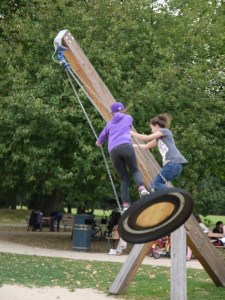Positive news from parliament for the first time in a long time, with the launch of a new report on play from the All-Party Parliamentary Group on a Fit and Healthy Childhood. Central to the report is its call for the promotion of play as part of a ‘whole child’ strategy. Read more on the website of Adrian Voce, former director of Play England.
A Parliamentary report on children’s play, published today, calls for play to be at the centre of a ‘whole child’ approach to health and wellbeing.
The All Party Parliamentary Group on a Fit and Healthy Childhood, chaired by Baroness Floella Benjamin, today launches its long-awaited report on children’s play.
Announcing the report, the group says that ‘whilst there is broad consensus about the importance of physical activity in the battle against obesity, play (policy) has lost political momentum in recent years and the report calls for a fresh approach’.
In a statement released alongside the report today, Baroness Benjamin says that the group’s ‘proposals on play are ‘integral to a “whole child” strategy for health and wellbeing and should not be regarded as an “add on”. Of course encouraging children to participate in sport is important, but in practice, not all children are “sporty”. Play benefits children of all ages…
View original post 329 more words






